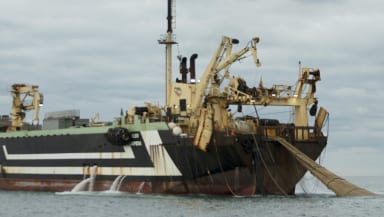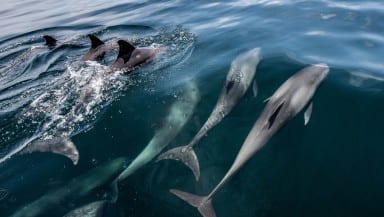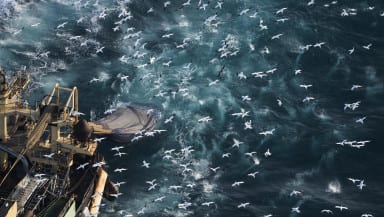The government just announced a long awaited support package for small-scale fishers in England, following those made available in Scotland, Wales and Northern Ireland weeks ago. £10m in cash grants has been made available for smaller boats and for schemes to help fishers sell their catch to their local communities.
This provides much needed, and long-requested relief to fishers and communities in England who have been without financial support for weeks – as previous government measures did not protect many small-scale fishers.
Before coronavirus, small-scale fishers were already in crisis
Like many workers, small-scale fishers in the UK have been pushed into crisis due to the global pandemic. The demand for a lot of UK fish has all but collapsed as pubs and restaurants have closed. And a huge export market, which makes up a large part of demand, has also dried up. Because of this, it is no longer profitable for the majority of the UK’s small-scale fleet to fish.
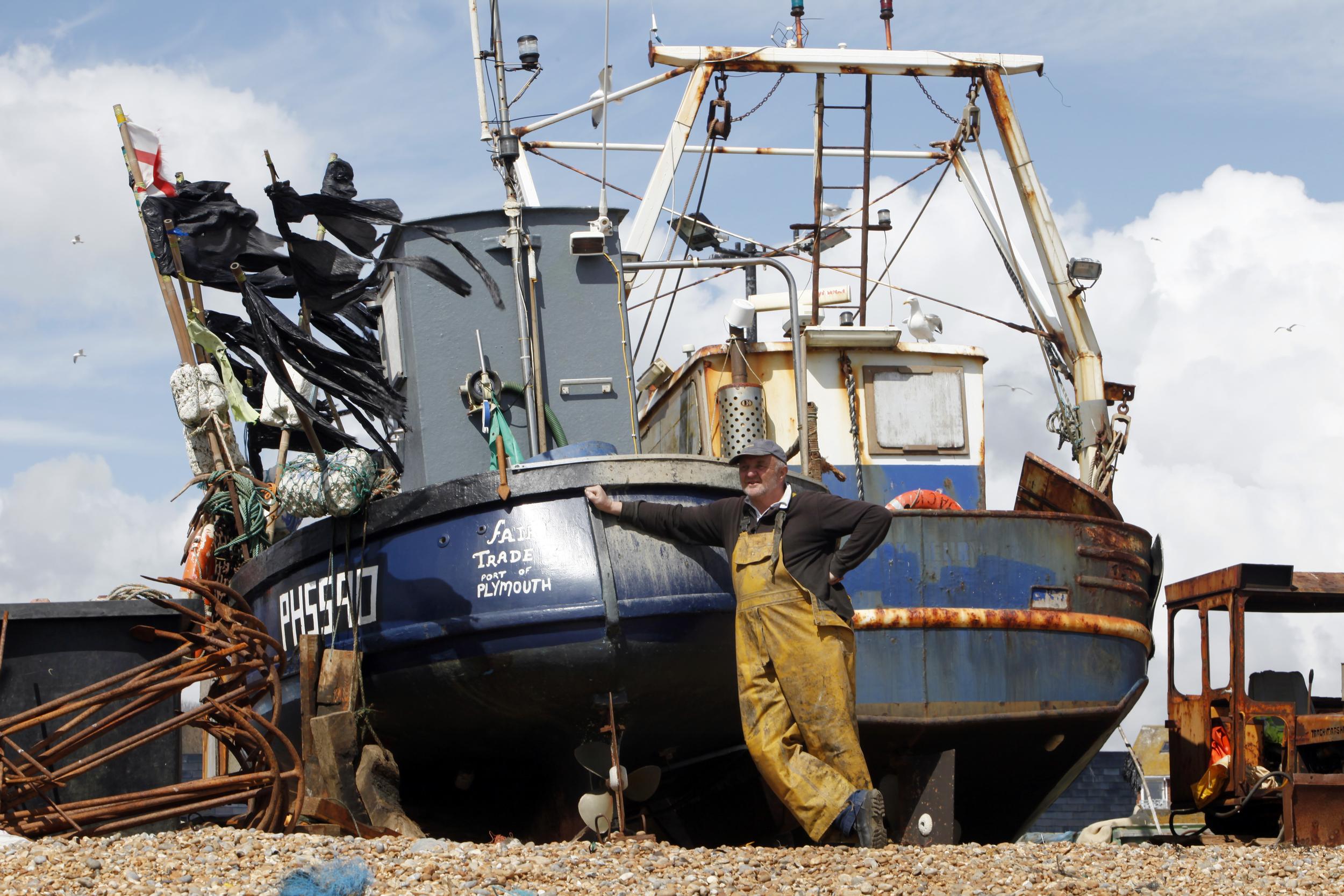
Steve Beaney, a small-scale fisherman in front of his boat in Hastings. © David Sandison / Greenpeace
These dire circumstances come against the backdrop of decades of struggle for local fishers. Whether through overfishing by industrial boats or unfair quota systems favouring bigger companies, or struggling to fish due to the impacts of climate change, the UK’s local fishers have faced many serious hardships in recent times.
Local fishers can help protect the oceans
Local fishing supports local communities. Here in the UK, the small-scale fishing fleet makes up 77% of the entire UK fishing fleet – and provides around half of the jobs in the sector.
But right now, industrial fishing is still emptying our seas. Deep sea bottom trawlers drag heavy fishing gear along a fragile seabed, and supertrawler boats have nets up to a mile long and can catch and process hundreds of tonnes of fish a day, harming other sea creatures, and reducing the catch for local fishing communities. They fish in UK waters, but process and sell in other countries, meaning that no economic benefit comes to the communities whose waters are being exploited.
Small-scale, sustainable and traditional fishing methods have a lower impact on our oceans, allowing fish stocks to recover whilst also feeding communities across the UK.
Oceans are vital in the fight against climate change. Ocean life absorbs and captures the carbon dioxide that’s heating our planet – so it’s vital that we protect our oceans from destructive industrial overfishing, and support local sustainable alternatives.
What needs to happen to build a resilient local fishing industry
The outbreak of Covid-19 has exposed many flaws in everyday society – and the fragility of global food systems is one of them.
Before the pandemic, 80% of fish caught in the UK was exported to the EU, Asia and the United States with long, sprawling global supply chains. Adding to this, 70% of seafood consumed in the UK is imported. Coronavirus has caused markets to collapse thanks to movement restrictions, falling demand, and the difficulty of transporting live shellfish.
A decent long term recovery from this crisis would see us build more efficient and resilient food systems.
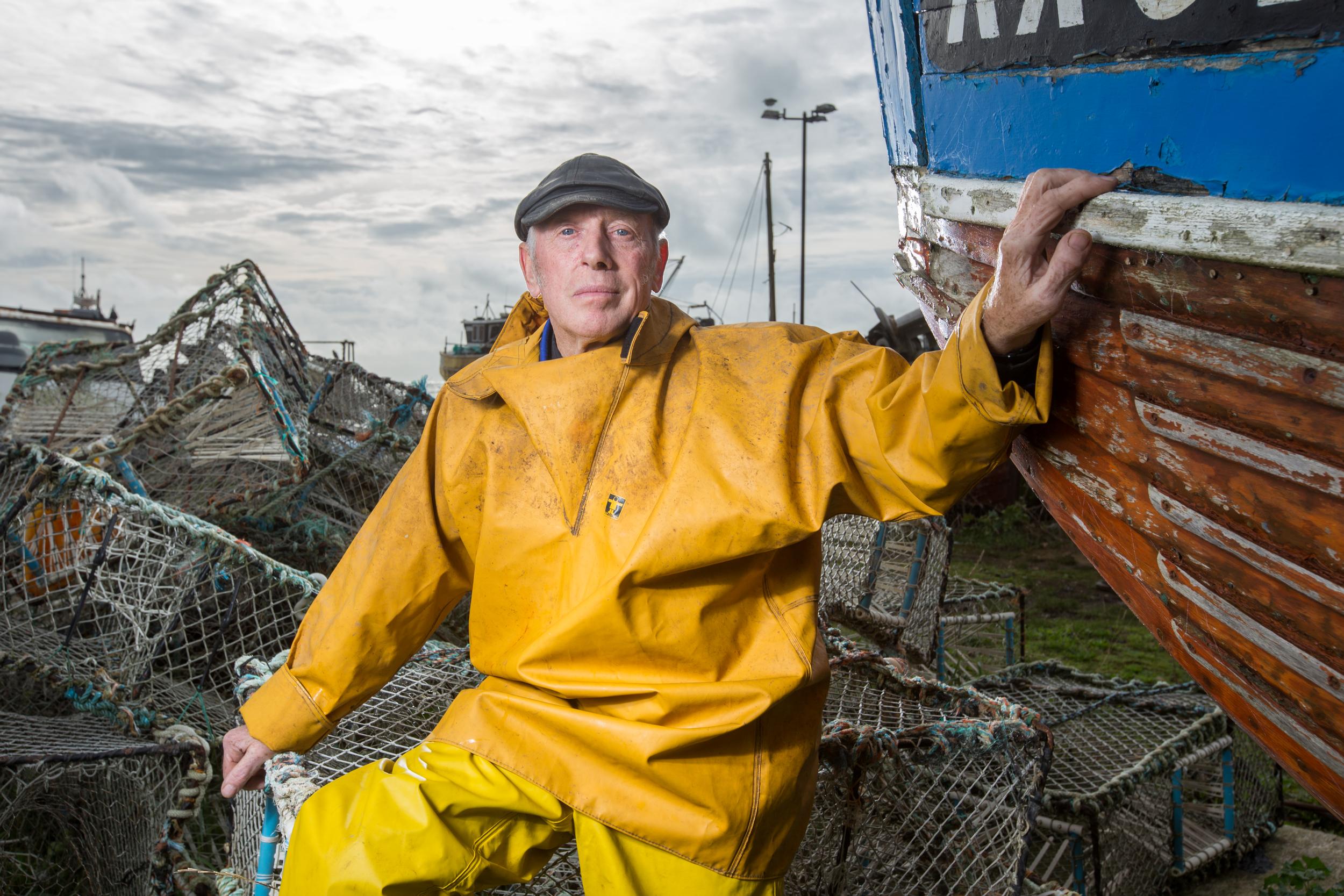
Portrait of Paul Joy, a small-scale fisherman from Hastings, East Sussex, UK. © Ciaran McCrickard / Greenpeace
For fishers, this means the government must redistribute UK quota based on social, environmental and local economic considerations, holding some back to help fish populations recover and build resilience to climate change.
It must also invest in infrastructure and technology to bolster local supply chains, so small-scale fishers can begin to supply more fish to UK customers. The growing number of fish home delivery schemes that have been set up to help combat the crisis shows how this could look.
Incentivising retailers and public bodies to source more fish from small-scale fishers will allow UK customers to buy more local, sustainably caught fish to help support our coastal communities.
And finally, the government must protect vulnerable marine ecosystems from industrial fishing to reduce pressure on marine life. This can help us build a fairer, more resilient food system that benefits both people and planet.

